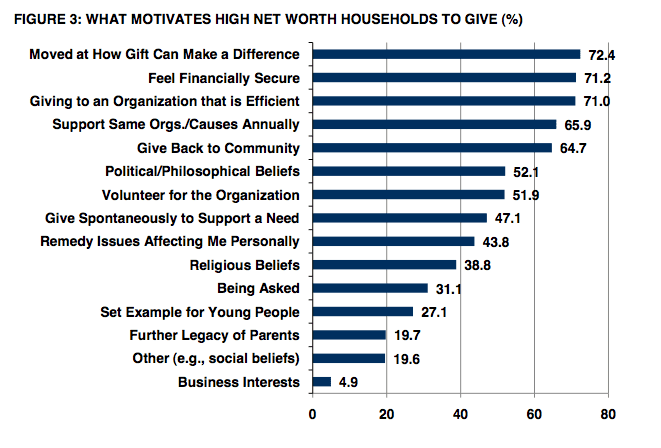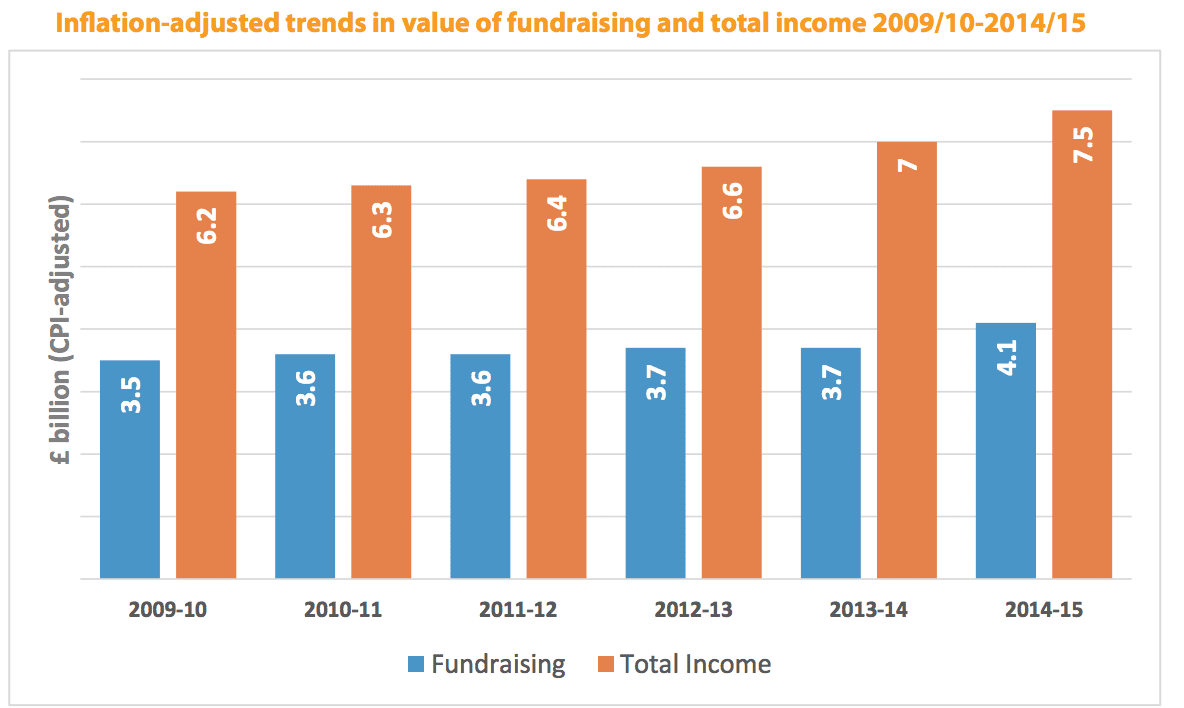What do high value donors actually value?
The 2010 Bank of America / Merill Lynch Study of High Net Worth Philanthropy has just been published.
Though this blog takes the UK fundraising perspective, we can learn a great deal from what's happening in other markets and this series of US studies deserves serious attention on our side of the Atlantic (and elsewhere).
So much of what they report has been remarkably close to what we've found in Bluefrog's qualitative research into higher value donors (you can download a number of our reports free of charge by clicking here or checking out the listing over on the left hand column – you'll need to scroll down the page a little for the links).
The full Bank of America / Merill Lynch report can be downloaded here. You'll also find a detailed synopsis and a twenty minute video outlining the main findings.
But if you are too busy for that, here are my highlights:
Commitment is steady (to favoured charities) but giving has declined
Donors tend to place their charities in a league table and It's important to stay near the top. This study found that just over a third of donors stopped giving to at least one organisation in 2009 (with 27% turning their back on two charities).
The overall average gift amounts fell by 35% in comparison to 2007.
Most (83%) usually give in response to disasters and for more than nine out of ten donors, this gift was in addition to their regular charitable giving.
People want value from their gifts
Knowing that their gift made a difference was top of the list of motivations (there's a clue there for getting to the top of a donor's charity league table). Feeling financially secure came a close second along with knowing that the organisation was efficient in using donations.
Giving is increasingly undertaken by families – not just individuals
I think this is going to be an issue of growing importance. Over two-thirds of those surveyed spoke of the collaborative nature of their decision making. If families give, the recognition should be for the family. Not just the individual.
Special is normal
High value donors are used to special treatment and come to see it as the norm. If you fail to match their expectations you are unlikely to build a lasting relationship. This study found that asking too often and asking for inappropriate amounts were the most likely ways to turn a donor off (59%).
It's blindingly obvious, but there's a simple way to ascertain how often donors want to give and what they see as appropriate levels of support – ask them – either face to face or on the telephone.
Donors like a guaranteed return
Wealthy people may be willing to take a risk with their financial investments, but when it came to their charitable work, just 23% reported high levels of risk tolerance, with 26% being completely risk adverse.
Though some donors may want to fund innovative, risky projects, the majority want their money to fund work with a high chance of success. How do you tell the difference? It's easy. Ask.
In conclusion
In short, these highly valuable supporters want a personal relationship where they retain a level of control over how you communicate with them and how their money is used. By responding to that need, you'll increase your chances of building a long-lasting, mutually beneficial relationship.
Or as one high value donor put it recently…
"You don't have the bargaining power in this relationship. This is a totally voluntary thing. A charitable act…any attempt to force me will get my back up."
Tags In
Related Posts
4 Comments
Comments are closed.
The Essentials

Crack the Code to Regular Giving: Insights, Strategies, and a Special Giveaway!

‘Tis Halloween. Keep to the light and beware the Four Fundraisers of the Apocalypse!

Why do people give? The Donor Participation Project with Louis Diez.

A guide to fundraising on the back of a postcard

What does the latest research tell us about the state of fundraising?








Call me cynical, but it’s also one of the most efficient ways of making tax deductions for high net worth individuals. I haven’t gone through the report yet, but I wonder if this point is covered.
Hi Rochelle
I don’t think you are cynical at all. I’ve looked at the report from a UK perspective and have highlighted the most interesting points on that basis.
Tax breaks are much more important in the US and you’ll see that the study shows that two-thirds of donors say they would cut back on giving if they were removed.
Thanks for reading
Thanks for pulling this together, Mark. Very useful indeed.
I always enjoy reading your eblasts and posts and have found them to be very useful and timely.
interesting article,, thanks for sharing .. I am glad to read it because it related to my studies